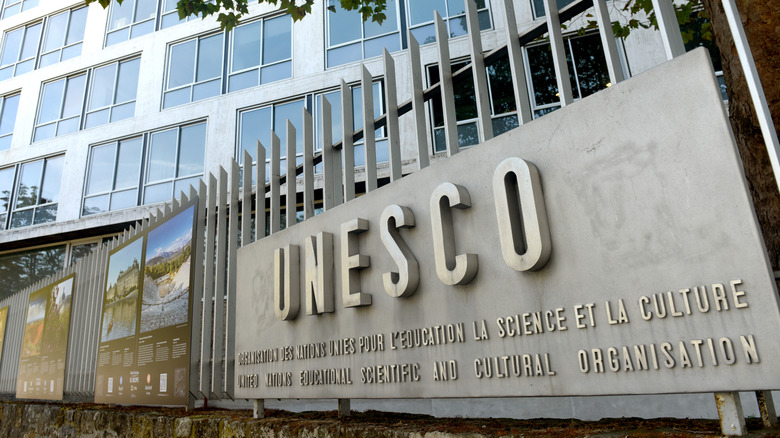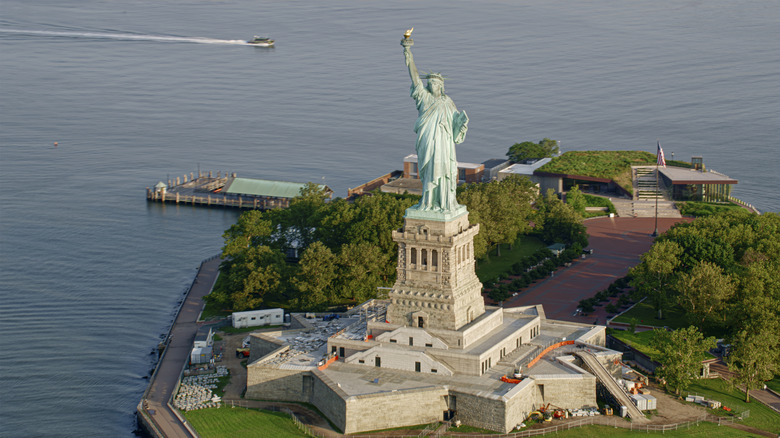What Happens To America's World Heritage Sites Once The US Withdraws From UNESCO?
You might have seen the "UNESCO World Heritage" plaques at places like Yellowstone, Yosemite, the Grand Canyon, the Statue of Liberty, and the Hopewell Ceremonial Earthworks along the Ohio River, signaling their cultural or natural significance. But on July 22, 2025, the U.S. State Department announced it would withdraw from the United Nations Educational, Scientific and Cultural Organization (UNESCO), effective December 31, 2026. Over 200 countries and territories are members of this agency, which promotes international cooperation in education, science, culture, and communication.
Among the main reasons for this severance are political and ideological disputes between Washington and the agency. The State Department stated, "Continued involvement in UNESCO is not in the national interest of the United States. UNESCO works to advance divisive social and cultural causes and maintains an outsized focus on the UN's Sustainable Development Goals, a globalist, ideological agenda for international development at odds with our America First foreign policy." Furthermore, it condemned UNESCO's admission of Palestine as a member state and general "anti-Israel rhetoric" within UNESCO. Director-General Audrey Azoulay denied these anti-Israel claims in a statement by mentioning UNESCO's multiple educational projects about the Holocaust and anti-Semitism.
What will happen to the 26 UNESCO World Heritage sites in America, like Yellowstone National Park or the Statue of Liberty? Fortunately, UNESCO status is conferred on the sites themselves — it doesn't go away when a member state steps away from the agency. Those designations were made under the World Heritage Convention, a separate treaty that the U.S. ratified in 1973, so the country will continue to preserve these sites. The U.S., however, will face a handful of consequences after its withdrawal.
The future of the US without UNESCO
So what will actually change for the U.S.? The United States won't be able to vote anymore in UNESCO bodies or shape priorities on cultural issues, from heritage conservation to designing an educational framework for generative AI. An op-ed by the conservative-leaning think-tank Brookings Institution claimed that America's withdrawal "will leave a void" and that America's presence and influence in international cultural and scientific cooperation will be significantly weakened. "There will be fewer American examples and experts, decreased invitations to join convenings, and a sizable hole in the global consensus," the op-ed, written by Anne Campbell and Emily Markovich Morris, reads.
Furthermore, the well-being of American parks and monuments could actually be at risk without UNESCO. Though the U.S. was once a major financial contributor to UNESCO, the country has reportedly not paid its dues to the organization since 2011. Still, the U.S. will lose access to the agency's financial assistance, visibility and tourism promotion via UNESCO networks, partnerships with other member countries, and data-sharing with agencies like UNESCO's biosphere and marine programs. Add that to President Donald Trump's budget cuts during 2025: Even less funding and support, now losing money from UNESCO, can further impact the National Park Service, which has already lost roughly a quarter of its permanent positions in 2025, according to The Coalition to Protect America's National Parks.
Can the U.S. ever be a part of UNESCO again? Yes. In fact, this is the third time the U.S. has withdrawn from UNESCO. The previous times were in 1983, under Ronald Reagan, and in 2017, under Donald Trump, and neither withdrawal lasted forever. George W. Bush renewed the U.S.'s membership in the agency in 2003, and Joe Biden in 2023.

